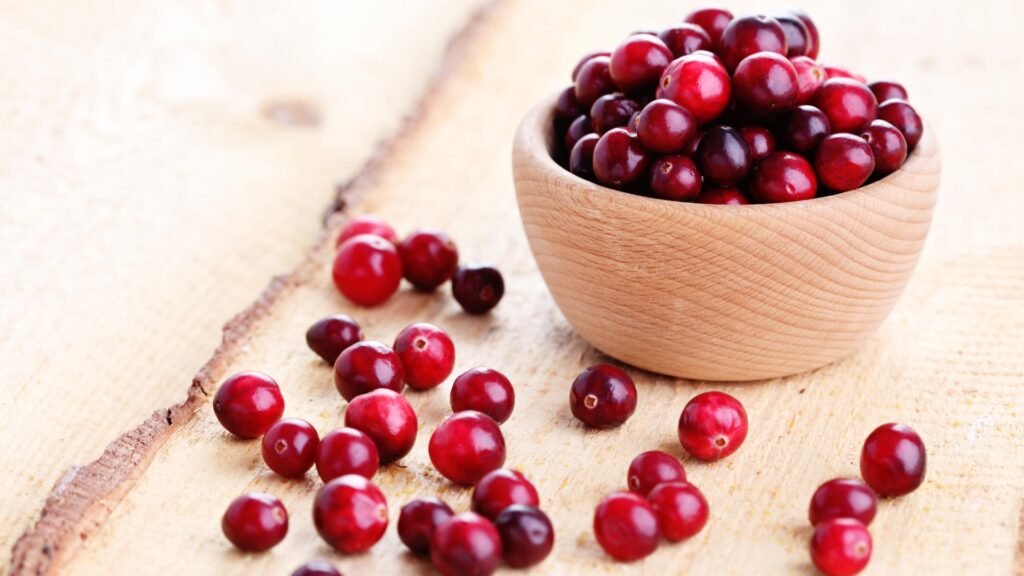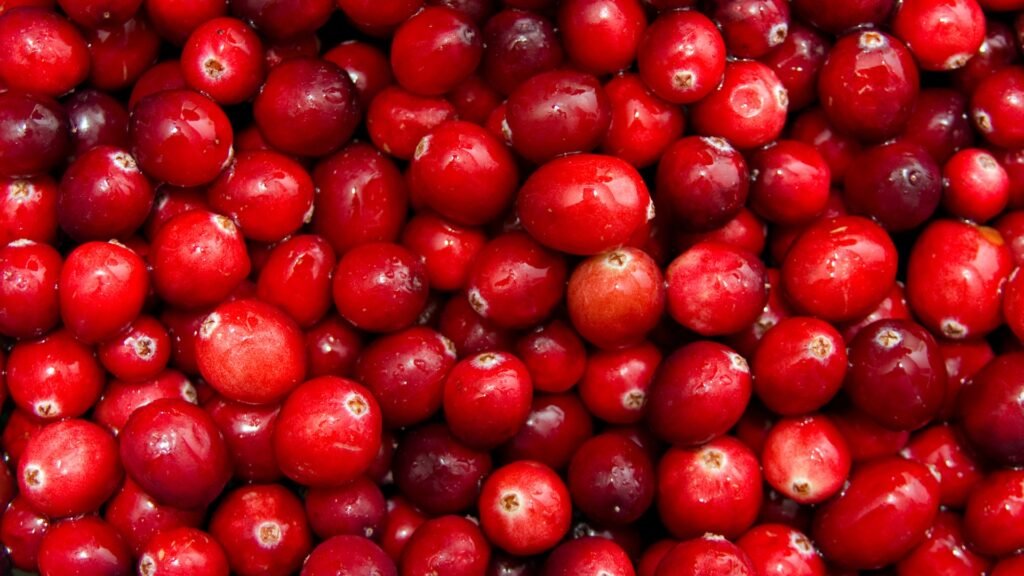Urinary Tract Infections (UTIs) can be a painful and uncomfortable experience for both men and women. However, incorporating cranberries into your diet may help prevent these infections from occurring. Cranberries and cranberry pills have been shown to have beneficial effects in reducing the symptoms of UTIs and preventing them from reoccurring. In this blog post, we will explore the role of cranberries in preventing UTIs and other natural ways to keep your urinary tract healthy.

Understanding Urinary Tract Infections
A Urinary Tract Infection, commonly referred to as a UTI, is a condition that arises when harmful bacteria find their way into the urinary system. This system includes the kidneys, bladder, ureters, and urethra, with infections most frequently occurring in the lower tract (the bladder and urethra). The entry of bacteria into this system leads to an inflammatory response, resulting in the typical symptoms associated with UTIs. These symptoms can vary in severity but often involve a persistent urge to urinate, a sharp pain or burning sensation during urination, and urine that appears cloudy or has a strong odor. In some cases, individuals may also experience muscle aches and abdominal discomfort.
The risk factors for developing a UTI are varied, with certain individuals being more susceptible due to anatomical differences, sexual activity, certain types of birth control, and other health conditions that may impair the immune system. Women, in particular, face a higher risk of developing UTIs owing to their shorter urethra, which provides an easier path for bacteria to enter the bladder. While UTIs are highly treatable, they can cause considerable discomfort and inconvenience to those affected. Recognizing the symptoms early and seeking appropriate medical intervention is crucial for managing and treating this condition effectively. Additionally, understanding how these infections occur and the factors that increase susceptibility can play a significant role in prevention strategies, including lifestyle and dietary adjustments.

The Power of Cranberries Against UTIs
Cranberries have long been celebrated for their unique ability to combat Urinary Tract Infections (UTIs), offering a natural method for addressing this common health concern. The secret to their effectiveness lies in a type of compound known as proanthocyanidins. These compounds exhibit remarkable properties that inhibit the adhesion of bacteria, notably E. coli, to the lining of the urinary tract. This action is crucial because it interrupts the initial step in the development of UTIs, thereby thwarting the progression of the infection.
The methodology through which cranberries exert their influence is particularly fascinating. Proanthocyanidins prevent the fimbriae of E. coli bacteria—their tiny, hair-like structures—from latching onto the cells of the urinary tract walls. This prevention is akin to making the urinary tract surface slippery, thus disallowing bacteria from establishing a stronghold and multiplying to create an infection.
Incorporating cranberries into one’s diet is a proactive approach to managing urinary health. Whether opting for cranberry juice, whole cranberries, or cranberry supplements, consistency is key to maximizing their preventive benefits. It’s noteworthy, however, that when choosing cranberry products, one should be mindful of the sugar content, especially in juices, as excessive sugar can counteract the health benefits.
Furthermore, research suggests that while cranberries are effective in preventing UTIs, their role in treating active infections is less clear. Thus, they are best utilized as part of a preventive strategy rather than a standalone treatment. For individuals who are at an increased risk of UTIs or looking to reduce recurrence, integrating cranberries into the diet could serve as a valuable component of a broader urinary health strategy.
By understanding and leveraging the power of cranberries, individuals can take a natural and effective step towards preventing the discomfort and complications associated with UTIs.

Other Natural Ways to Prevent UTIs
While the benefits of cranberries in preventing UTIs are widely recognized, incorporating additional natural remedies into your lifestyle can further bolster your defense against these infections. One fundamental strategy is ensuring adequate hydration. Consuming sufficient amounts of water daily plays a pivotal role in flushing bacteria from your urinary system, thus minimizing the risk of infections. Another key aspect involves dietary choices that support urinary health. Foods high in fiber, such as fruits, vegetables, and whole grains, help keep the digestive system functioning smoothly, which can indirectly support urinary tract health by preventing constipation and the subsequent pressure it can place on the urinary tract.
Practicing good bathroom hygiene is also essential. For women, wiping from front to back reduces the risk of introducing bacteria from the rectal area into the urethra. Both men and women should urinate shortly after sexual activity to help flush out any bacteria that may have been introduced. Additionally, wearing loose, breathable cotton underwear and avoiding irritating soaps or body washes in the genital area can help maintain a healthy environment that is less conducive to bacterial growth.
The role of probiotics in urinary health should not be underestimated. These beneficial bacteria, found in fermented foods like yogurt, kefir, and sauerkraut, contribute to a balanced microbial environment in the gut and urinary tract. This balance is crucial for preventing the overgrowth of harmful bacteria that can lead to infections.
Lastly, adopting habits that support overall immune function is vital. Regular exercise, sufficient sleep, and stress management practices can all contribute to a robust immune system capable of warding off infections, including UTIs. By combining these natural prevention strategies with the benefits of cranberries, individuals can achieve a comprehensive approach to maintaining urinary tract health and preventing the recurrence of UTIs.

The Importance of Hydration in UTI Prevention
Hydration plays a pivotal role in the health of your urinary system, with water intake being a key factor in preventing urinary tract infections (UTIs). Drinking adequate amounts of water is crucial because it helps to dilute the urine, reducing the concentration of bacteria that can lead to infections. When the body is well-hydrated, urine flows more frequently, allowing bacteria to be flushed from the urinary tract before an infection can take hold. This is particularly important for those who have experienced UTIs in the past or are at higher risk for developing them.
Increasing your fluid intake doesn’t just mean water; it can also include other fluids like herbal teas and water-rich fruits and vegetables, which contribute to your overall hydration. However, it’s important to avoid beverages that can irritate the bladder, such as those containing caffeine or alcohol, as they may increase the risk of a UTI by contributing to dehydration.
The frequency and urgency to urinate often increase with higher fluid intake, which might seem inconvenient to some. Yet, this is beneficial for urinary tract health as it ensures the regular flushing of the system. It’s a natural and effective way to keep the urinary tract clear of the bacteria that cause UTIs.
For individuals looking to optimize their UTI prevention strategy, monitoring the color of their urine can provide a helpful indication of hydration levels. Aim for a light, straw-colored urine as a sign of proper hydration. Darker urine can indicate that you need to increase your water intake.
Incorporating a habit of drinking water regularly throughout the day can help ensure you meet your hydration needs, supporting the urinary tract’s function and contributing to the broader goal of preventing UTIs.

Potential Side Effects and Considerations
While integrating cranberries into one’s daily regimen offers numerous health advantages, especially in UTI prevention, it’s crucial to acknowledge certain considerations and potential side effects. Consuming cranberries or their derivatives in moderation is typically safe for the majority of people. However, in some cases, individuals might experience gastrointestinal discomfort, including stomach pain or diarrhea, particularly when consuming cranberries in high quantities. This is attributed to the natural acidity and high fiber content in cranberries, which can irritate sensitive digestive systems.
Furthermore, individuals prone to kidney stones should exercise caution with cranberry consumption. Cranberries contain a notable amount of oxalates, compounds that can contribute to the formation of kidney stones in susceptible individuals. Therefore, it’s advisable for those with a history or a higher risk of kidney stones to consult with a healthcare professional prior to making cranberries a regular part of their diet.
Another aspect to consider is the interaction of cranberries with certain medications. Specifically, cranberries may interact with blood thinners, such as warfarin, potentially affecting the drug’s efficacy. This interaction underscores the importance of discussing dietary changes with a healthcare provider, particularly if you are under medication or have underlying health conditions.
In light of these considerations, while cranberries are a valuable addition to a preventative health strategy, individual circumstances and potential dietary impacts should be evaluated to ensure that the benefits outweigh any risks. Adjusting the amount consumed or opting for different forms of cranberries might be necessary based on personal health profiles and existing medical advice.

Additional Benefits of Cranberries Beyond UTI Prevention
The health advantages of incorporating cranberries into one’s diet extend significantly beyond their role in preventing urinary tract infections. These vibrant, tart berries are a powerhouse of nutrients and antioxidants, offering a spectrum of benefits that contribute to overall well-being. One of the standout properties of cranberries is their high antioxidant content, particularly vitamin C, flavonoids, and proanthocyanidins. These compounds are crucial for neutralizing free radicals, molecules that can cause oxidative stress and lead to chronic diseases, including heart disease and certain cancers.
Cranberries have been shown to support cardiovascular health in multiple ways. They help to improve blood vessel function, reduce blood pressure, and decrease inflammation, which are all risk factors for heart disease. The antioxidants in cranberries can also prevent LDL cholesterol from oxidizing, an event that can lead to atherosclerosis, or the buildup of plaque in the arteries. This protective effect underscores the broader impact of cranberries on heart health.
Digestive health is another area where cranberries can make a positive impact. The unique compounds in cranberries can inhibit the growth of harmful bacteria in the stomach, such as Helicobacter pylori, which is associated with stomach ulcers and cancer. By promoting a healthy balance of bacteria in the gut, cranberries support the digestive system’s overall function and can help in preventing gastrointestinal disorders.
Emerging research suggests that the bioactive compounds found in cranberries may also have anticancer properties. While studies are still in the early stages, there is promising evidence that cranberries can help reduce the risk of certain types of cancer by inhibiting tumor growth and decreasing inflammation.
Cranberries, with their rich nutrient profile, are more than just a preventive measure for UTIs. They contribute to the maintenance of cardiovascular and digestive health, offer protective effects against cancer, and provide a robust defense against oxidative stress, highlighting their multifaceted role in promoting health and preventing disease.

UTIs and Antibiotic Resistance: How Cranberries Can Help
In an era where antibiotic resistance is becoming a pressing global health issue, the role of cranberries in UTI prevention takes on added significance. Frequent use of antibiotics to treat urinary tract infections contributes to the development of strains of bacteria that are no longer responsive to conventional treatments. This resistance complicates the management of UTIs and necessitates the search for effective alternatives that do not contribute to the problem.
Cranberries emerge as a compelling solution in this context. Their mechanism of preventing bacterial adhesion to the urinary tract walls offers a preventive strategy that doesn’t rely on antibiotics. This not only helps in reducing the incidence of UTIs but also diminishes the necessity for antibiotic use, thereby playing a part in combating antibiotic resistance.
Moreover, the broader adoption of cranberries as a dietary measure for UTI prevention could lead to a decrease in the overall demand for antibiotics in managing these infections. This, in turn, supports efforts to preserve the efficacy of antibiotics for situations where they are genuinely needed.
Encouraging the use of cranberries and cranberry products as part of a comprehensive approach to urinary health is not just about preventing infections but also about contributing to a larger public health goal. By integrating cranberries into preventive care routines, individuals can take a proactive step towards maintaining urinary tract health while also aiding in the fight against the global challenge of antibiotic resistance.


